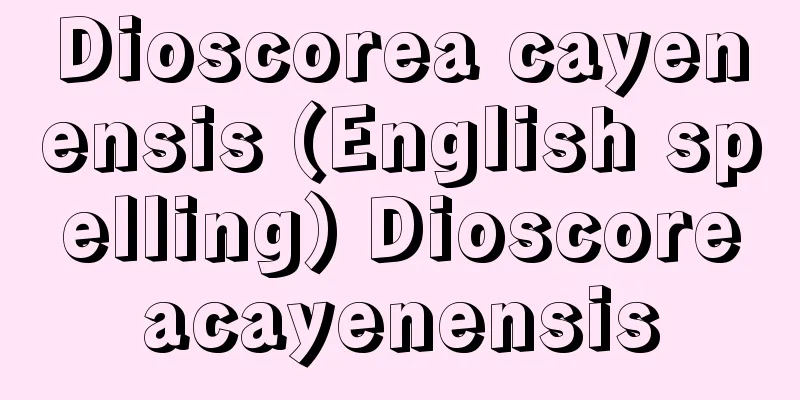Worldly desires - Bonnou

|
In Buddhism, this is a general term for the mental processes that trouble and afflict the minds and bodies of all living beings. The Sanskrit word kleśa was translated into Chinese as "bonno" (desire) or "daze" (delusion), but this word also has the meaning of "to pollute" and therefore was also translated as "zen" (stain) or "zenma" (defilement). This word was originally one of many Buddhist terms that described evil and impure mental states, but it eventually came to be used as a general term and representative of these psychological processes and mental states. In this broad sense, the most basic of the bonno are greed (attachment), anger (hatred), and ignorance, which are called the "three poisons," "three impurities," and "three ungood roots." To these, pride, doubt, and false views are added, and these are called the six earthly desires, which are considered to be the fundamental earthly desires. In addition, there is the potential earthly desire of drowsiness, the actual earthly desire of binding, binding, and leaking, and many other earthly desires have been described through detailed analysis of the psychological states of evil humans, and they have been called the "108 earthly desires" and the "84,000 earthly desires." By completely destroying these earthly desires, one can achieve liberation, and so earthly desires were described as objects that must be rejected. However, in later Mahayana Buddhism, some people began to claim that earthly desires and enlightenment are essentially the same, and that "earthly desires are bodhi." Thus, the issue of earthly desires is deeply related to the state of enlightenment, and is discussed in various ways in Buddhism as an important theme. [Ikeda Rentaro] Source: Shogakukan Encyclopedia Nipponica About Encyclopedia Nipponica Information | Legend |
|
仏教で説く、衆生(しゅじょう)の身心を煩わし悩ます精神作用の総称。クレーシャkleśaというサンスクリット語が中国で「煩悩」「惑」と翻訳されたのであるが、この語は「汚(けが)す」という意味合いももっており、そのために「染(ぜん)」「染汚(ぜんま)」などとも訳された。またこのことばは元来、不善・不浄(ふじょう)の精神状態を表す数多くの仏教術語のうちの一つであったが、やがてそれらの心理作用や精神状態を総称し、代表することばとして使われるようになった。このような広い意味での煩悩には、もっとも基本的なものとして、「三毒」「三垢(さんく)」「三不善根」などといわれる貪(とん)(執着)・瞋(じん)(憎悪)・痴(ち)(無知)がある。これに慢(まん)(慢心)・疑〔(ぎ)、仏教の教えに対する疑い〕・見〔(けん)、誤った見解〕を加えて六煩悩といい、根本的な煩悩とされる。このほか、潜在的な煩悩である随眠(ずいめん)、現に作用している煩悩である纏(てん)、あるいは結(けつ)・縛(ばく)・漏(ろ)など、人間の不善の心理状態を詳細に分析して、きわめて多種多様の煩悩が説かれ、「百八の煩悩」「八万四千の煩悩」などといわれた。これらの煩悩を滅ぼし尽くすことによって解脱(げだつ)することができるのであり、したがって煩悩はあくまで断じられるべき対象として説かれたのである。しかし後世の大乗仏教のなかには、煩悩と悟(さと)りの本質はなんら異なるものではないという、「煩悩即菩提(ぼだい)」を主張するものも現れるに至った。このように煩悩の問題は、悟りの境地と深くかかわるため、重要なテーマとして仏教においてさまざまな形で論じられている。 [池田練太郎] 出典 小学館 日本大百科全書(ニッポニカ)日本大百科全書(ニッポニカ)について 情報 | 凡例 |
>>: Instinct - Instinct (English), Trieb (German)
Recommend
Wu Xing - Goko
A district under the jurisdiction of Huzhou City ...
Shurisuke Ohno - Shurisuke Ohno
...A military commander in the Azuchi-Momoyama an...
Reitzenstein, R.
…an academic movement and circle started by a gro...
Grass Quartz - Grass Quartz
A type of quartz that looks like it has grass in i...
Unshu mandarin (Satsuma mandarin) - Unshu mandarin
A seedling variety of citrus introduced from China...
Kallinikos
...Population: about 35,000. Greek name: Nikēphor...
Indian Plow - Indosuki
...Various types of plows were used in the plow-f...
Sir William Blackstone
An 18th century British jurist. Born in London, h...
Ibn Iyās
Egyptian historian from the late Mamluk period (14...
Warner, S.
…American film company. The four Warner brothers,...
Andrology
…There are various fields that deal with sexual i...
Separate payment - Bechinou
〘Noun〙 ("Bechi" is the Go-on pronunciati...
Parkinson, J.
…However, during this period, many fake specimens...
Hole-searing
...A punishment in which the prisoner was tied to...
Eiden Ken
…For this reason, in the 18th century, the Qing D...









